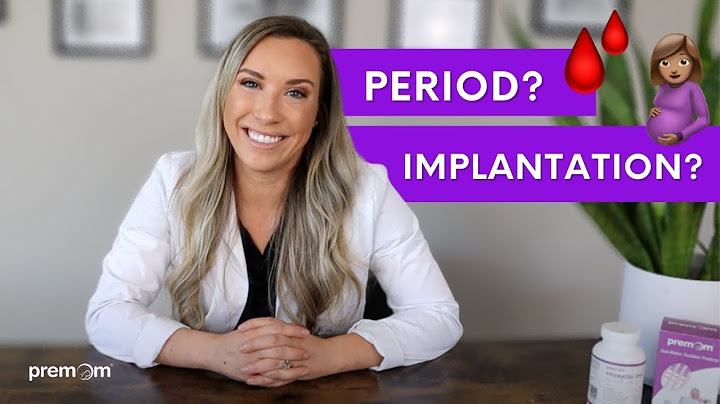Morning sickness can start very early for some women. About one in five women get nausea soon after they conceive, while about one in 30 start vomiting too. Show But it's more usual to first experience nausea when you're five weeks or six weeks pregnant. If you don’t feel queasy in the early weeks, you may miss morning sickness altogether. You may start to feel sick as soon as you wake up. But although it's called morning sickness, nausea can strike at any time of the day or night. Certain smells may set off your nausea. Tiredness can also leave you feeling sick, so you may feel worse later in the day. Things that made you feel sick before you became pregnant may feel more nauseating now. The sickness you feel is thought to be connected to the hormones human chorionic gonadotrophin (hCG) and oestrogen. These hormones are produced by your body in large quantities until the placenta has grown enough to take over nourishing your baby. Pregnancy hormones are likely to be higher, and sickness worse as a result, if you're expecting a girl, or twins or triplets If your morning sickness is severe, you may feel very sick and be vomiting often. The most severe form of morning sickness is hyperemesis gravidarum (HG), which means excessive vomiting during pregnancy. If you can't eat or drink anything without being sick, and are vomiting many times a day, you may have HG. HG can cause dehydration and weight loss, so ask for help from your doctor as soon as possible. Coping with morning sickness can be hard. It can make it difficult for you to work, do shopping, or look after your family. It can also be upsetting to be so unwell when you feel you should be happy. Although morning sickness can make you feel miserable, it is a good sign. It means that the levels of hormones in your body are high, protecting your pregnancy. Rest assured that you should be through the worst by week 16. Try not to worry if you don't feel sick at all – that's fine too, and it just means you've escaped an unpleasant pregnancy side-effect! Take a look at these tips to help you keep nausea at bay. Jenny Leach is an editor and writer specialising in evidence-based health content. Researchers from the University of Warwick have narrowed the time frame that nausea and vomiting during pregnancy will potentially start to just three days for most women, opening up the possibility for scientists to identify a biological cause for the condition. By measuring the onset of symptoms from a woman's date of ovulation for the first time, rather than last menstrual period, they have demonstrated that symptoms start earlier in pregnancy than previously thought, and within a smaller time frame. Nausea and vomiting in pregnancy, often referred to as pregnancy sickness, which usually ends by 12 -14 weeks of pregnancy is experienced by most women during pregnancy although some will experience it more severely, as in the case of hyperemesis gravidarm when the symptoms can continue throughout the pregnancy. The cause has historically often been seen as psychological but this latest study reinforces the view that the cause is biological and is linked to a specific developmental stage of pregnancy. Researchers from Warwick Medical School and the Department of Statistics at the University of Warwick have drawn their conclusions from a unique dataset collected at the Clearblue Innovation Centre, by SPD Development Company Ltd. Their results, published in the journal BMC Pregnancy and Childbirth, identify a specific time period during pregnancy that could point scientists to an anatomical or biochemical cause for the condition. The date of a woman's last menstrual period is commonly used to measure the start of pregnancy, but their date of ovulation is thought to be a more accurate starting point as menstrual cycles can vary greatly between individuals, and even between cycles for the same individual. The researchers used data from daily symptom diaries kept by 256 pregnant women to compare the start of their nausea and vomiting symptoms to the date of their last menstrual period and date of ovulation, as determined by a urine test. Using their date of ovulation as the start of pregnancy most women experienced the first symptoms of pregnancy sickness after 8 to 10 days, compared to 20 to 30 days if measured from their last menstrual period. This not only demonstrated that pregnancy sickness starts earlier than previous research has shown, but has also shown that using date of ovulation narrows the time frame that symptoms start to 3 days, compared to 11 days if last menstrual period is used. Lead author Professor Roger Gadsby of Warwick Medical School said: "The precise course of pregnancy sickness is unknown, but this research shows that it occurs at a specific developmental stage, in a specific timeslot. "For researchers it narrows our focus in terms of where we look for the cause. If we know that symptoms occur in a very narrow window 8-10 days after ovulation, researchers can concentrate their efforts on that particular stage of development to find the cause of the condition, both anatomically and biochemically. "In the past, women suffering with nausea and vomiting in pregnancy have had their symptoms trivialised and overlooked because it was thought there was a psychological basis for the symptoms. This research further reinforces that nothing could be further from the truth, that this is a biological problem related to the development of the early fetus." The research also found that 94% of women experienced symptoms of pregnancy sickness, a higher proportion than previous research that generally calculates the proportion as closer to 80%. This is likely to be because data was regularly collected from participants before they became pregnant up to 60 days after last menstrual period, while most other studies ask women to recall their symptoms after they have become pregnant. Professor Roger Gadsby adds: "What we've shown is that more people get symptoms of pregnancy sickness than has ever been shown before, and one of the reasons for that is that this research has picked up mild early symptoms that tend to fade by 7-8 weeks. In other studies those symptoms would have faded by the time the research started." Previous research by the same team has demonstrated that the term 'morning sickness' is misleading as nausea and vomiting can occur at any time of day, and argues that 'nausea and sickness in pregnancy' or 'pregnancy sickness' is more appropriate and avoids trivialising the condition. Story Source: Materials provided by University of Warwick. Note: Content may be edited for style and length. How many days after missed period do pregnancy symptoms start?When do pregnancy symptoms start? Every woman has their own journey to motherhood, so symptoms and timing can vary. Some women may begin noticing the first early signs of pregnancy a week or two after conception, while others will start to feel symptoms closer to four or five weeks after conception.
Can morning sickness Start 2 days after missed period?Symptoms, such as breast tenderness and morning sickness, tend to develop abruptly. Typically this happens about two weeks from when you missed your last period (six weeks since you actually had a period).
How soon do you get nauseous if you're pregnant?It usually starts at about 6 weeks of pregnancy and is at its worst at about 9 weeks. Most women feel better in their second trimester, but some have morning sickness throughout pregnancy. If you have morning sickness, tell your health care provider.
|

Related Posts
Advertising
LATEST NEWS
Advertising
Populer
Advertising
About

Copyright © 2024 pauex Inc.


















